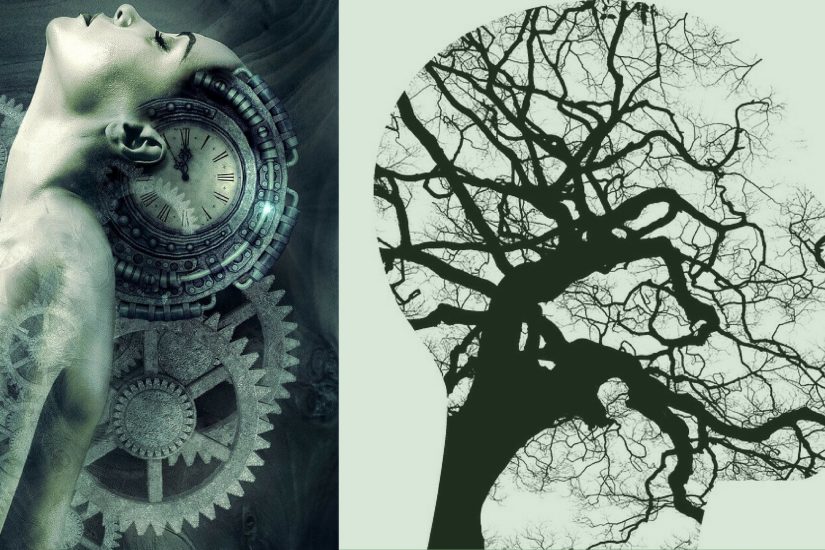Feeling your emotions is a powerful spiritual practice that brings you back home to your…

Counselling and Life Coaching: Understanding Their Unique Value
As a counsellor with decades of experience working alongside life coaches, I’m often asked about the differences between counselling and life coaching. While both modalities offer tremendous value, there’s a growing misconception about their roles in personal development. Some coaches position these approaches as opposing forces, suggesting that one must move forward (coaching) or heal the past (counselling). However, after years of witnessing transformations through both practices, I can tell you the reality is far more nuanced. Both professions offer unique and complementary pathways that, when understood properly, can significantly support your journey of growth and fulfillment.
Beyond the Common Misconceptions
The coaching industry often draws comparisons to clinical therapy rather than contemporary counselling that focuses on personal development. This creates an artificial divide, with some coaches advising potential clients to bypass counselling altogether. Such comparisons oversimplify both professions and miss the valuable insights and growth opportunities each can provide.
Many coaches present a clear-cut narrative: coaching is future-focused and goal-oriented while counselling dwells exclusively on past traumas and unconscious patterns. They often claim that coaches work with the conscious mind to create change, while counsellors solely explore the unconscious. Perhaps most surprisingly, there’s a widespread belief that coaches empower clients to find their own solutions while counsellors simply dispense advice.
As a counsellor with over two decades of experience, I can tell you this couldn’t be further from the truth. From my very first days of training in 1998, we were explicitly taught never to give direct advice. Why? Because we recognize that genuine transformation comes from within—the client’s insights and inner wisdom guide the process of change.
The Reality of Contemporary Counselling
Contemporary counselling is remarkably dynamic and multifaceted. In my practice, we actively work with both present challenges and future aspirations. We explore past experiences not to dwell in them but to illuminate patterns blocking current growth. When clients share their stories, we collaborate to uncover their natural resourcefulness and internal guidance system. This process naturally catalyzes positive change, creating ripple effects that transform their present circumstances and future possibilities.
Shared Foundations: Honoring Client Wisdom
Both coaching and counselling recognize the inherent wisdom within each client. At their core, these professions create ongoing partnerships designed to help people achieve fulfilling results in their personal and professional lives. This collaborative approach acknowledges that each person is naturally creative and resourceful, with professionals serving to enhance rather than instill these innate qualities.
Understanding the Distinct Value of Coaching
Coaching has evolved by integrating Person-centred approaches with structured personal development training. What distinguishes coaching is its structured approach to skill development. Coaches use specific tools and frameworks to enhance productivity and effectiveness in both personal and professional spheres. They excel at helping clients define their vision of success and create practical steps toward achieving it.
A Personal Case Study: Different Approaches, Shared Goals
During a time when I was struggling with relationship issues, I experienced firsthand how both approaches could work together. My life coach took a solutions-focused approach, guiding me through exercises that used body language awareness to shift my perspective. When I discussed the same issue with my counsellor, he helped me recognize this as a recurring pattern in my life. While his insight led me to understand my deeper desire to return to love, my coach provided practical tools for getting there.
Understanding the Scope and Limitations
While coaching proved invaluable for developing practical skills, there were deeper issues it couldn’t address. The narrative that repeatedly drew me into feelings of neglect and unwanted pain required the expertise of my counsellor. Through our work together, I was able to heal from childhood abuse and connect with my spiritual consciousness. This more profound healing transformed my past and present, helping me move beyond fear of the unknown and embrace life’s sacred dimensions.
KlearMinds, in their analysis of counselling and coaching differences, highlights this limitation in coaching’s scope. They note that coaching training, which can be completed in as little as one to six months, doesn’t typically cover the influence of past experiences. While coaches may attempt to move clients forward through active strategies, this approach isn’t always effective. When we don’t fully understand the root of problematic patterns, we perpetuate them despite our best intentions to change. In these cases, counselling and psychotherapy can provide a deeper understanding of how to work through persistent challenges.
The Importance of Professional Recognition
The mark of an exceptional coach is their ability to recognize when a client needs deeper emotional healing and their willingness to refer them to a qualified counsellor. Similarly, counsellors must acknowledge their limitations regarding psychological pathologies and refer clients to mental health professionals when appropriate. Understanding and respecting these professional boundaries ensures clients receive the most appropriate support for their specific needs.
Choosing the Right Support
The decision to seek a counsellor or life coach isn’t always clear-cut. Your specific needs should guide this choice. I recommend scheduling an initial consultation to assess the fit. Pay attention to how you feel during this meeting: Are you truly heard and understood? Does the practitioner communicate their approach clearly and engagingly? Most importantly, do their expertise and values align with what you seek?
My Integrative Approach: Bridging Multiple Modalities
As an integrative spiritual counsellor, my practice extends beyond traditional therapy and coaching by incorporating Channeling as a transformative healing tool. This unique combination creates a bridge between therapeutic approaches and spiritual guidance, allowing me to address both human challenges and spiritual growth in our work together.
I integrate multiple therapeutic modalities, including Person-centered therapy, Trust-oriented approaches, Hypnotherapy, and Bodymind healing —all enhanced by Channeling. This comprehensive approach offers clients the benefits of evidence-based psychological counselling and energy-based healing guided by channeled wisdom.
Channeling serves multiple purposes in our work: it provides practical solutions while facilitating deep healing processes, helping you develop as an objective observer of your own experience. Through this practice, you’ll access both your conscious awareness and deeper layers of subconscious wisdom. In our counselling sessions, channeling becomes a powerful catalyst for transformation, enhancing your natural ability to tune into your body’s wisdom while exploring thoughts and emotions in a safe, supported environment.
Embracing Your Path to Transformation
The journey of personal growth and spiritual development is deeply personal and unique to each individual. Whether you’re drawn to the structured approach of coaching, the deeper healing work of counseling, or the spiritual guidance offered through channeling, each modality offers valuable tools for transformation. My integrative approach combines these powerful methodologies, honoring both the practical and spiritual aspects of personal evolution.
As you navigate your own path to authenticity and wholeness, remember that there’s no one-size-fits-all solution. By understanding these distinctions and complementary benefits, you can make an informed choice about which approach—or combination of approaches—will best serve your journey of personal growth and transformation.
❖
Uncover, recover, and discover your whole self
with with BodySOUL Integration.
❖




This is an interesting timing you posted this write up, Linda. As in the recent weeks I have been myself pondering on whether to call my work coaching or counseling, and I don’t see either fitting precisely, especially since I integrate concepts Kashmir Saivism ( from authentic Tantra) and Tantric sexuality, see http://experientialsexlab.com/sexuality-relationship-coaching/. We really need more “names” to cover a bigger range of what gets mixed in.
I have previously read about how the coaching and counseling differ from each along the descriptions you have kindly compiled here. What I feel is that we need more than one support person to help the client overcome the past, so that they can be free to move forward, to help them choose a future that suits their up-to-date capacity, and of course to embrace the life as it is in the current moment.
We, support persons, have a wide range of insights and experience, some of it overlapping, some of it unique. And so my feeling is that the best outcome for the client would be where they were to work with a group of support persons with varying “angles” yet, who able to work together. Then a support person whose primarily strength is in leading them to a better future, could still help the client to accept/heal the past and if they feel they are getting close to being out of their waters, they ask the specialist in that are to come in. And the other way around.
I already do that when it’s clear cut and I know someone who can support the client better, but it’s not always that clear.
Clearly, I’m just brainstorming here in your comments section, Linda. And hopefully others would chime in and more clarity and perhaps some new ideas will come out of it.
Thank you for initiating this very thought provoking discussion, Linda.
Hi Stas, Thank you for sharing. It’s a tough call to decide between coaching and counseling. It may be best to refer to yourself as an amalgamation of both. From my understanding, coaching focuses on life-skill and re-framing beliefs and patterns, while counseling goes into pain, into the shadow without the need to instruct or change it. I find in my work that both these approaches are needed and the timing is crucial. I share your feeling that the best outcome for the client is to work with a group of support: counselors, coaches, and healers who are able to work together for the benefit of the client.